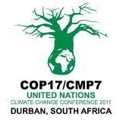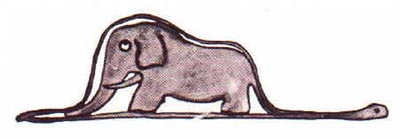 Mr February (aka Simon Johnson) examines the latest Pure Advantage report promoting green economics. It’s all great sustainability stuff except that it fails to mention carbon pricing (emissions trading schemes or carbon taxes). How seriously can we take the Pure Advantage “green growth” message on climate change, when they are not upfront about their position on a price on carbon?
Mr February (aka Simon Johnson) examines the latest Pure Advantage report promoting green economics. It’s all great sustainability stuff except that it fails to mention carbon pricing (emissions trading schemes or carbon taxes). How seriously can we take the Pure Advantage “green growth” message on climate change, when they are not upfront about their position on a price on carbon?
Pure Advantage, the green business advocacy group, have just released a new green growth report titled ‘New Zealand’s Position in the Green Race’. Hot Topic has posted about Pure Advantage before and PA founder Phillip Mills provided a guest post on how NZ needs a bold low-carbon business strategy.
The report has three goals: to define green growth, to summarise New Zealand’s uninspiring environmental and economic performance, and to propose “a process for developing a green growth recipe for NZ and a strategy for delivering it” (page 27). The basic idea of the report is clear from this graphic — where ‘Green Growth’ starts as an amorphous brain storm of ideas, which then gets focused through the ‘NZ Green Race’ report and an economic analysis, before emerging like a butterfly from a chrysalis as a number of strategies and policies.
Continue reading “Pure Advantage report good in parts, but silent on carbon pricing”


 Simon Johnson/aka Mr February argues that the New Zealand Emissions Trading Scheme has become living-dead “zombie” legislation that infects other statutes with its own virulent climate change insanity. The example is a recent decision by the Environment Court that it can’t consider climate change impacts of coal mining as described by James Hansen in the Forest and Bird appeal of the resource consents for the opencast ‘Escarpment’ coal mine.
Simon Johnson/aka Mr February argues that the New Zealand Emissions Trading Scheme has become living-dead “zombie” legislation that infects other statutes with its own virulent climate change insanity. The example is a recent decision by the Environment Court that it can’t consider climate change impacts of coal mining as described by James Hansen in the Forest and Bird appeal of the resource consents for the opencast ‘Escarpment’ coal mine. Simon Johnson reports that
Simon Johnson reports that  Simon Johnson discusses the Durban UNFCCC international climate negotiations through the historic lens of the Second World War and the Rio 1992 Earth Summit.
Simon Johnson discusses the Durban UNFCCC international climate negotiations through the historic lens of the Second World War and the Rio 1992 Earth Summit.
You must be logged in to post a comment.